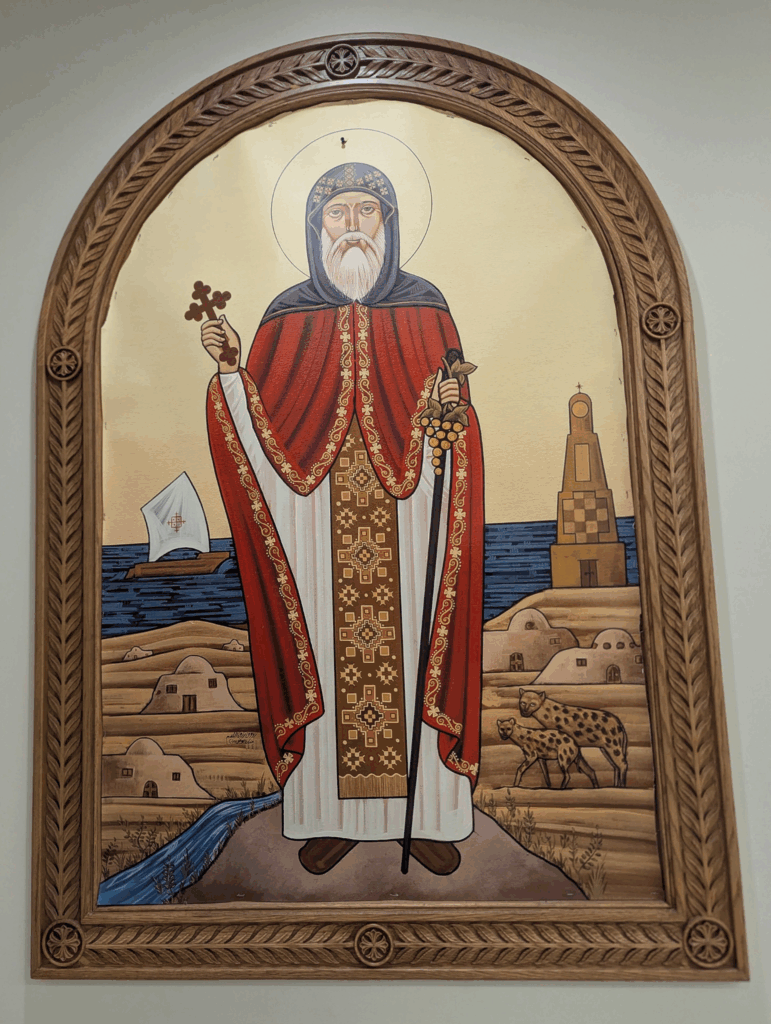
Overview
St. Macarius of Alexandria, also called Macarius the Junior, was a 4th-century monk known for his deep humility, intense prayer life, and spiritual wisdom. He lived in the desert near Alexandria and became a guide to many monks, earning the title Father of the Cells. He spent his life in worship, often enduring hardship to grow closer to God. Once, he spent five days in deep prayer without distraction, even as devils tried to scare him with visions and fire. But in the end, a small worldly thought reminded him to stay humble. St. Macarius lived simply, avoided attention, and constantly worked to overcome pride. He even carried heavy sand through the desert to wear himself down when tempted by prideful thoughts.
Full Description
St. Macarius of Alexandria, also known as Macarius the Younger, was a revered Christian monk who lived in the 4th century. He was a contemporary of St. Macarius the Great, and to distinguish between them, he became known as the Junior. From a young age, he dedicated himself to a life of prayer, discipline, and solitude. He became a monk at a monastery near Alexandria and eventually became a spiritual leader for the monastic cells in the region, earning the title Father of the Cells.
St. Macarius practiced intense forms of worship and self-denial. At one point, he spent five continuous days in deep spiritual contemplation, focused entirely on heaven, the saints, and Christ. Despite facing distractions—such as terrifying visions and physical discomfort—he endured patiently. However, on the fifth day, a small thought about earthly needs humbled him, reminding him that spiritual discipline should always be grounded in humility.
Throughout his life, he fought against pride, often using physical hardship to keep himself spiritually grounded. For example, when prideful thoughts tempted him to seek fame as a healer, he refused to act on them and instead performed acts of humility, like carrying a basket of sand across the desert until he was physically exhausted.
He lived for many years as a recluse in the desert of Wadi El-Natroun (Scetis), eventually becoming abbot of the surrounding monasteries. St. Macarius was known not only for his personal discipline but also for his wisdom in guiding others. He visited other monastic communities, including that of St. Pachomius, living anonymously among them until his identity was revealed through divine revelation.
At one point, he was called upon during a drought in Alexandria. After his arrival and prayer, rain began to fall—so much so that the people eventually asked him to pray for it to stop, which he did.
Later in life, during a period of persecution, St. Macarius was exiled by Emperor Valens along with St. Macarius the Great. While in exile, they preached the Christian faith to the local people and brought many to believe in Christ before returning to their monasteries.
St. Macarius believed that when a virtue became known to others, it lost its value. As a result, he constantly strove to grow spiritually in secret, even seeking to master any virtue he learned someone else possessed. He departed in peace, remembered as a model of humility, endurance, and deep devotion to God.
Interesting Fact
A hyena once brought him her sick cubs—after he healed them, she returned with a sheepskin that he used as a mat until he died.
Citations
CopticChurch.net. “Commemorations for Bashons 6.” CopticChurch.net, https://www.copticchurch.net/synaxarium/9_6.html. Accessed 16 May 2025.